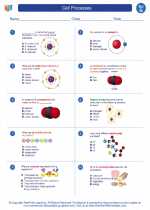Innovation
Innovation refers to the process of creating, developing, and implementing new ideas, products, or processes that bring about positive change. It involves the application of creativity and problem-solving skills to address existing challenges or to meet new demands in various fields such as science, technology, business, and society as a whole.
Types of Innovation
- Product Innovation: Involves the development of new or improved products or services.
- Process Innovation: Focuses on improving the methods and systems used to produce goods or deliver services.
- Business Model Innovation: Involves the creation of new ways of generating revenue, delivering value to customers, or organizing the resources and activities within a company.
- Social Innovation: Aims to address social and environmental issues through new ideas, strategies, and interventions.
Importance of Innovation
Innovation plays a crucial role in driving progress and fostering growth in various sectors. It leads to advancements in technology, improvements in efficiency, and the creation of new markets and industries. Additionally, innovation can lead to the development of sustainable solutions to global challenges and enhance the quality of life for individuals and communities.
Factors Influencing Innovation
Several factors can influence the process of innovation, including:
- Technology: The availability and advancement of technology can significantly impact the innovation process.
- Market Demand: Identifying and responding to consumer needs and preferences can drive innovation in product development.
- Regulatory Environment: Government policies and regulations can either facilitate or hinder innovation in certain industries.
- Collaboration and Networking: Open communication and collaboration among individuals and organizations can foster a culture of innovation.
Study Guide
To further understand the concept of innovation, consider the following study guide:
- Define the term "innovation" and provide examples of innovative products or services.
- Discuss the impact of innovation on economic growth and development.
- Explain the different types of innovation and provide examples for each type.
- Analyze the factors that can either facilitate or hinder innovation in a specific industry or sector.
- Explore the role of collaboration and networking in promoting innovation.
- Identify and research a current innovative trend or development in a chosen field and present a case study on its impact.
By engaging with the study guide and exploring relevant examples and case studies, you can gain a comprehensive understanding of the significance and dynamics of innovation in various contexts.
.◂Science Worksheets and Study Guides Seventh Grade. Cell Processes

 Activity Lesson
Activity Lesson
 Worksheet/Answer key
Worksheet/Answer key
 Worksheet/Answer key
Worksheet/Answer key
 Worksheet/Answer key
Worksheet/Answer key
 Worksheet/Answer key
Worksheet/Answer key
 Vocabulary/Answer key
Vocabulary/Answer key
 Vocabulary/Answer key
Vocabulary/Answer key
 Vocabulary/Answer key
Vocabulary/Answer key
 Vocabulary/Answer key
Vocabulary/Answer key
 Vocabulary/Answer key
Vocabulary/Answer key
 Vocabulary/Answer key
Vocabulary/Answer key
 Vocabulary/Answer key
Vocabulary/Answer key
